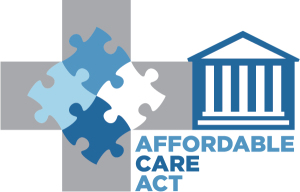 As an update to our December 9th post, here is the final ruling and most current information from Breedlove & Associates regarding helping your nanny with her health insurance.
As an update to our December 9th post, here is the final ruling and most current information from Breedlove & Associates regarding helping your nanny with her health insurance.
Affordable Care Act:
As a result of the Patient Protection and Affordable Care Act (PPACA), most individuals are required to have health insurance or face a monetary penalty. While household employers are not required to provide health insurance for their employee, families can provide or contribute to a policy to help meet this mandate. Additionally, Congress has two types of tax incentives to encourage household employers to contribute to their employee’s health insurance.
The first incentive is to allow employer contributions toward an employee’s health insurance premiums to be treated as non-taxable compensation — meaning neither employer nor employee has to pay taxes on that portion of the compensation. The second incentive is an employer tax credit on health insurance contributions. Combined, these incentives make it wise to consider health insurance contributions as part of the compensation package.
NON TAXABLE COMPENSATION
Household employers with 1 employee can contribute to their employee’s health insurance premiums and treat the entire amount as non-taxable compensation. (Employers with 2 or more employees must purchase health insurance through SHOP to gain this benefit). This creates a significant tax advantage in situations where the employee has obtained, or is planning to obtain, health insurance. For the employee, it has the effect of paying for the health insurance premiums with pre-tax dollars, which effectively reduces the cost by a percentage equal to the employee’s marginal tax rate. For most household employees, this will be somewhere in the 15-20% range. For the family that employs the worker, it reduces the taxable wages upon which their employer taxes are based, thereby saving them approximately 10% of the amount of the health insurance contributions. Using an average health insurance cost of $350 per month, the nanny saves about $600-$800 per year and the family saves about $400 per year — simply by strategically structuring the payroll.
To achieve these tax advantages, we recommend that families pay the insurance company directly. This will eliminate any possibility of the money being used for other purposes and will make life much easier in the event of an audit. If that’s not possible, we recommend getting copies of the monthly health insurance invoices.
HEALTH INSURANCE TAX CREDIT FOR SMALL EMPLOYERS
The Health Insurance Tax Credit for Small Employers enables employers who pay for at least half (50%) of their employee’s health insurance premiums to take a tax credit of up to 50% of the annual contribution amount. (Health Savings Accounts and Health Reimbursement Accounts are not eligible for this tax break). To qualify for this tax credit, the employer must have fewer than 25 employees, pay average annual wages (for all employees) of less than $50,000 and purchase the policy through SHOP (Small Business Health Options Program).
Note: Because SHOP is a relatively new program, frequent changes and updates may occur. Please visit the SHOP website for more information.
The tax credit percentage of 50% gradually decreases as the average annual salary increases. Using an average household employee salary of $30,000 and an average health insurance cost of $350 per month, a family would receive a tax credit of $1,680 on their federal income tax return.
FAQ’S: THE AFFORDABLE CARE ACT:
What is the Affordable Care Act?
The Patient Protection and Affordable Care Act, commonly referred to as the Affordable Care Act, is a federal statute which was signed into law in 2010. The statute is primarily aimed at reducing the overall cost of health care and decreasing the number of uninsured individuals living in the United States by enacting a number of different mandates, subsidies and tax credits.
Am I required to offer health insurance to my employee(s)?
No, employers are not required to offer health insurance if they employ fewer than 50 employees. However, you are required to provide your current employee(s) and, at the time of hire, any future employee(s) with notice of the new Health Insurance Marketplace.
Is my employee required to have health insurance?
Yes, beginning in 2014, your employee may be charged penalties if she does not have health insurance coverage. However, you are not responsible for making sure your employee has health insurance.
What is the Health Insurance Marketplace?
The Health Insurance Marketplace, or The Marketplace, is a “one-stop shop” where individuals can compare and purchase health insurance policies. Open enrollment for The Marketplace opens on November 15, 2014 for coverage beginning January 1, 2015. Your employee(s) will be able to purchase health insurance through The Marketplace until open enrollment ends on February 15, 2015. For more information on The Marketplace, or to complete an online application for health insurance coverage, please visit www.HealthCare.gov.
How much will health insurance cost?
The cost of health insurance will vary depending on your state and the amount of coverage your employee chooses. After completing an application through The Marketplace, your employee will be able to compare prices and coverage options for different health insurance policies. Depending on your employee’s income and family size, she may be eligible for the Advance Premium Tax Credit if she purchases insurance through The Marketplace. The credit can be applied directly to her monthly premiums which results in immediate cost savings. If she qualifies for the Advance Premium Tax Credit, her savings will be reflected in the prices displayed on The Marketplace.
If I contribute to my employee’s health insurance policy, will I be eligible for any tax breaks?
If you have 1 employee and contribute to their health insurance premium, the amount of your contribution is considered “non-taxable compensation” – so neither you nor your employee would have any taxes on that portion of the compensation. In addition to the non-taxable advantage, if you set up a health insurance policy for your employee through SHOP (Small Business Health Options Program) on the Marketplace and pay at least 50% of your employee’s premiums, you may be able to take advantage of the Credit for Small Employer Health Insurance. To take this credit, you’ll attach Form 8941 to your personal income tax return. The credit is up to 50% of the contribution you pay. If you have 2 or more employees, you must purchase a policy through SHOP in order for your contributions to be considered non-taxable.
